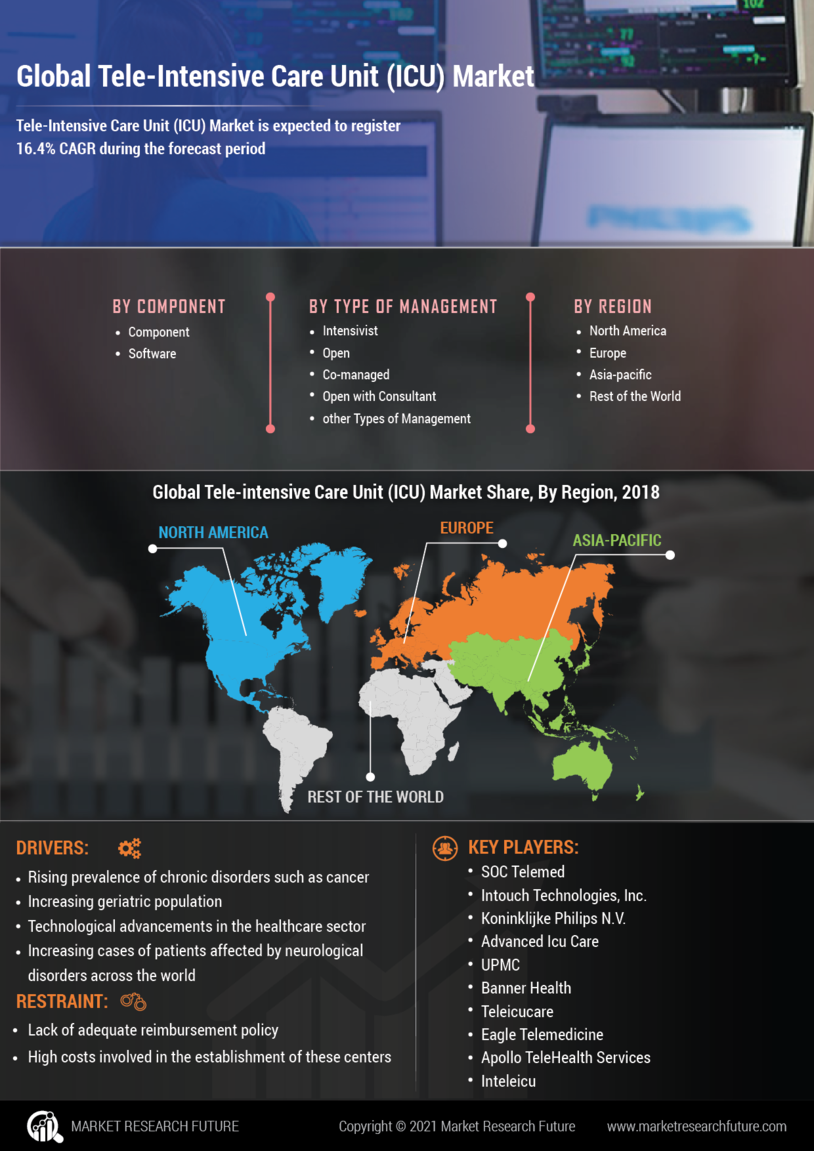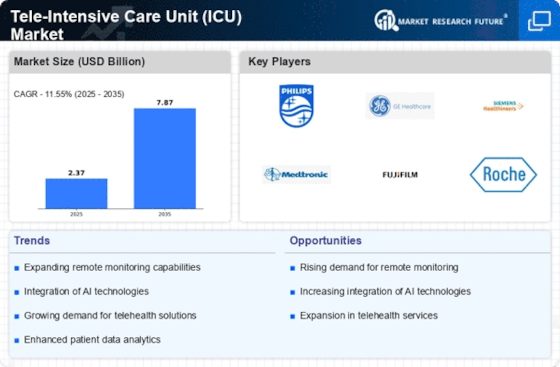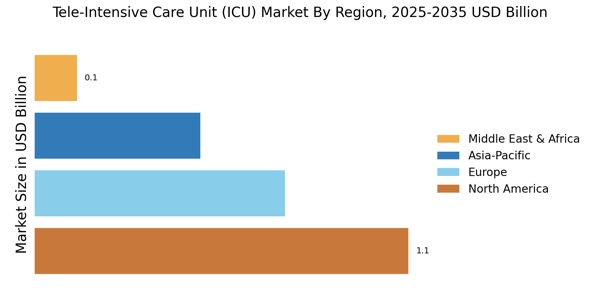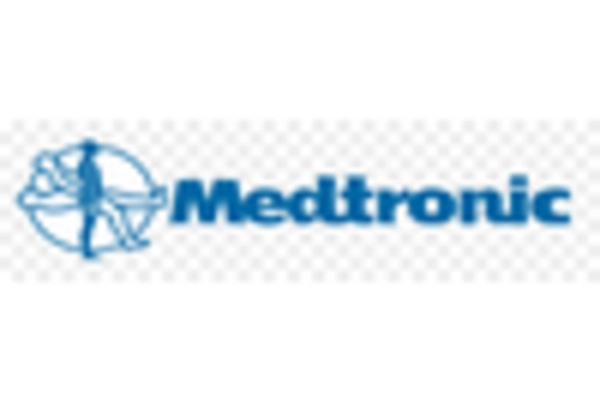Rising Prevalence of Chronic Diseases
The increasing prevalence of chronic diseases such as diabetes, heart disease, and respiratory disorders is a primary driver for the Tele-Intensive Care Unit (ICU) Market. As these conditions often require continuous monitoring and specialized care, healthcare providers are increasingly adopting tele-ICU solutions to manage patients remotely. According to recent data, chronic diseases account for approximately 70% of all deaths, necessitating innovative care models. Tele-ICU systems enable healthcare professionals to monitor patients in real-time, improving outcomes and reducing hospital readmissions. This trend is likely to continue, as the aging population further exacerbates the burden of chronic illnesses, thereby propelling the demand for tele-ICU services.
Increased Focus on Patient-Centered Care
The shift towards patient-centered care is a notable driver for the Tele-Intensive Care Unit (ICU) Market. Patients and families are increasingly seeking more involvement in their healthcare decisions, which tele-ICU services can facilitate through remote monitoring and communication. This approach not only enhances patient satisfaction but also improves adherence to treatment plans. Research indicates that patient engagement can lead to better health outcomes and reduced hospital readmissions. As healthcare providers recognize the importance of patient-centered care, the adoption of tele-ICU solutions is likely to increase, aligning with the broader trend of prioritizing patient needs and preferences in healthcare delivery.
Technological Integration and Innovation
The rapid integration of advanced technologies such as artificial intelligence, machine learning, and data analytics is transforming the Tele-Intensive Care Unit (ICU) Market. These innovations facilitate enhanced patient monitoring, predictive analytics, and decision support systems, which are crucial for effective remote care. For instance, AI algorithms can analyze patient data in real-time, alerting healthcare providers to potential complications before they escalate. The market for tele-ICU technologies is projected to grow significantly, driven by these technological advancements. As hospitals increasingly adopt these cutting-edge solutions, the demand for tele-ICU services is expected to rise, reflecting a broader trend towards digital health solutions.
Cost Efficiency and Resource Optimization
Cost efficiency is a significant driver for the Tele-Intensive Care Unit (ICU) Market, as healthcare systems seek to optimize resources while maintaining high-quality care. Tele-ICU solutions can reduce the need for physical ICU beds, allowing hospitals to allocate resources more effectively. Studies indicate that tele-ICU programs can lead to a reduction in overall healthcare costs by up to 25%, primarily through decreased length of stay and improved patient management. This financial incentive encourages healthcare facilities to invest in tele-ICU technologies, which can enhance operational efficiency and patient care. As healthcare costs continue to rise, the emphasis on cost-effective solutions will likely drive further adoption of tele-ICU services.
Regulatory Support and Policy Initiatives
Regulatory support and favorable policy initiatives are emerging as key drivers for the Tele-Intensive Care Unit (ICU) Market. Governments and health organizations are increasingly recognizing the value of telehealth solutions, leading to the establishment of supportive frameworks and reimbursement policies. For example, recent policy changes have expanded reimbursement for tele-ICU services, making them more accessible to healthcare providers. This regulatory backing not only encourages the adoption of tele-ICU technologies but also fosters innovation within the industry. As policies continue to evolve in favor of telehealth, the tele-ICU market is poised for growth, reflecting a commitment to enhancing healthcare delivery through technology.


















Leave a Comment